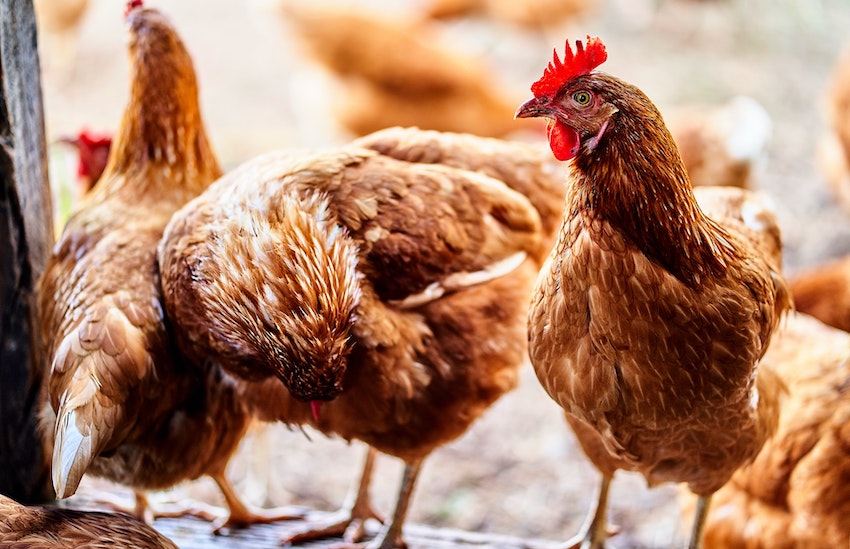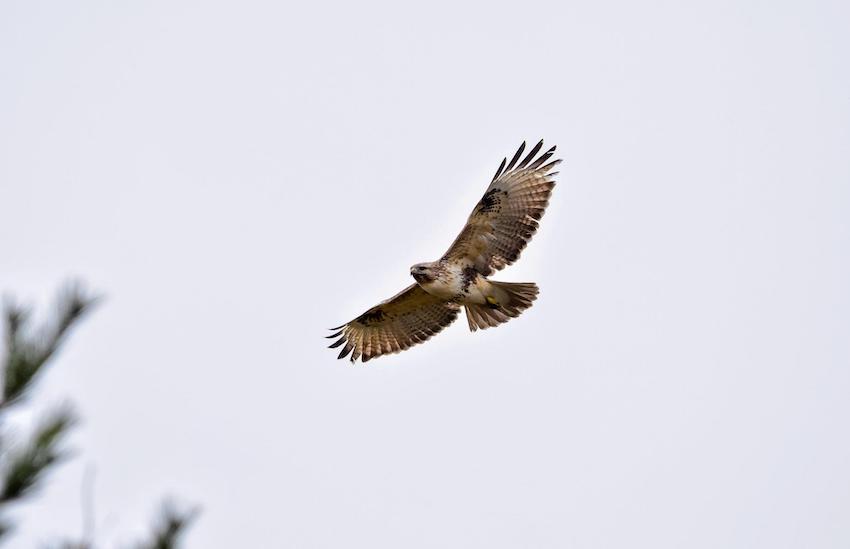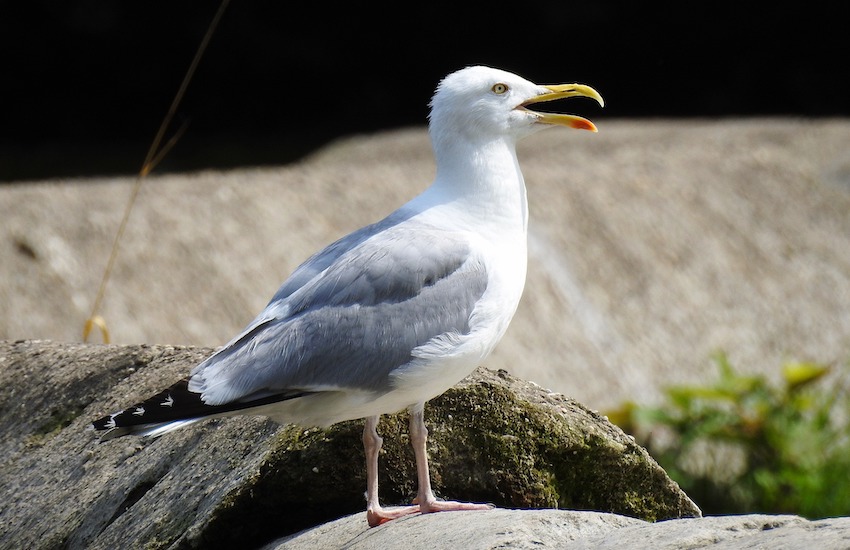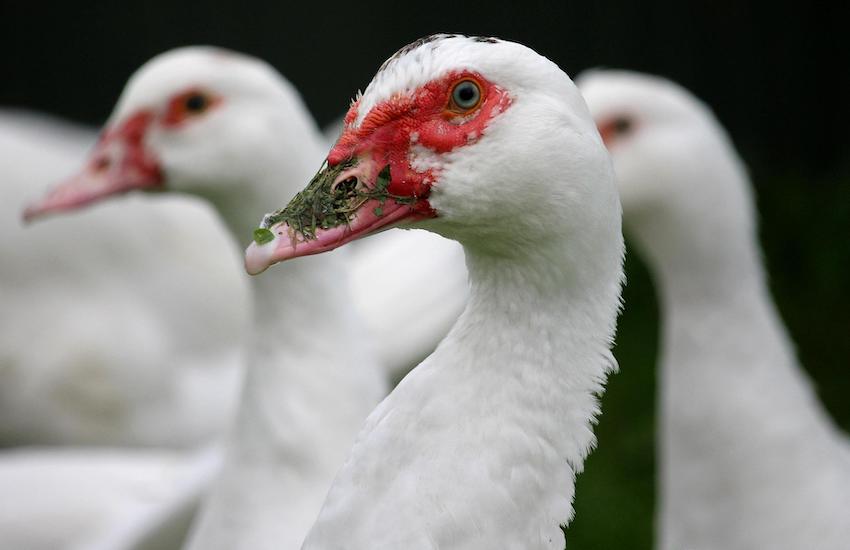
The first outbreak of highly-pathogenic bird flu was confirmed on a Jersey farm in August, resulting in new restrictions being introduced on the Island. Here’s a guide to the current strain of bird flu and what it means for Jersey’s wild birds and domestic flocks.
What is bird flu?
Avian influenza – also known as bird flu – is a highly contagious viral disease that affects both domestic and wild birds. All bird species are considered susceptible, and it can have devastating consequences for the poultry industry.
There are four strains that have caused concern in recent years. The first, identified in 1997, was H5N1, followed by H7N9 in 2013, H5N6 in 2014, and H5N8 in 2016. The latest wave of avian flu comes from the H5N1 strain.
H5N1 is a highly-pathogenic avian influenza (HPAI) strain, which according to the World Organisation for Animal Health (WOAH) can cause ‘severe clinical signs and possible high mortality rates’.
How does bird flu spread?
Bird flu is thought to be carried by migrating birds. Jersey’s Government has said the birds ‘mingle with domestic poultry during their travels’, and can ‘spread the disease through body fluids or physical contact’.
They added: ‘In previous years the risk of avian flu was greatest during the colder months from autumn to spring. However this year the risk has continued into the summer months.’

WOAH has said that ‘because of the resistant nature of avian influenza viruses, they can also be carried on farm equipment and spread easily from farm to farm’.
Can humans catch the virus?
Humans are unlikely to catch bird flu unless they are in close contact with infected birds, droppings or bedding, or if they prepare infected poultry for cooking. The NHS advise that you cannot catch it by eating fully cooked poultry or eggs, even in areas affected by outbreaks.
Only one human case of bird flu has been reported in the UK since October 2021, after a man caught the virus from around 20 infected ducks living in his home in Devon.
Bird flu can also spread to other animals, including pigs.
What bird species have been affected in Jersey?
The first cases of bird flu in Jersey occurred in February 2021, after two dead wild buzzards and a captive red-breasted goose tested positive for the virus.
The Government of Jersey’s Chief Vet subsequently introduced restrictions on domestic bird movements to reduce contact with wild birds, and increased biosecurity measures. This included declaring a prevention zone, which was later lifted on Liberation Day in May.

A herring gull was then found dead at Long Beach, Gorey in July, and was confirmed as the fourth case of bird flu in Jersey this year.
The first outbreak of bird flu in a domestic flock was identified in August, after more than 30 birds died on a farm in St Peter. The remaining 18 birds were consequently culled.
The Government introduced a 3-kilometre protection zone around the farm, while the rest of Jersey was declared a ‘surveillance zone’, with officials highly recommending that birds be housed.
At the beginning of September, six chickens died from bird flu in St Lawrence.
What restrictions are now in place?
On Wednesday 8 September the Government introduced an Island-wide Prevention Zone following the rise in bird flu cases, meaning all bird keepers must house their birds to help prevent further outbreaks.
Enclosures and runs should be completely covered with a solid or impermeable roof so that wild bird faeces cannot enter, and food and water placed away from the perimeter fencing, which should also be vermin proof.
Defra-approved disinfectant foot dips must also be placed at entrances and exits.
The Environment Minister, Deputy Jonathan Renouf, said the virus was causing ‘mass mortalities and suffering in flocks’ and they were ‘stepping-up’ measures to protect both the birds and the livelihoods of commercial farmers.
‘Bird flu has the potential to wipe out huge numbers of birds so we must act now to do everything we can to minimise the risks of infection. The key is keeping poultry away from contact with wild birds,’ he said.
How do you spot the virus in birds?
The Government of Jersey says the clinical signs of bird flu can vary between species. ‘It may simply be seen as a sudden high mortality and rapid increase in the number of birds found dead,’ they said.
‘In poultry, this is possibly preceded by severe depression or fever in the flock, and infected birds may show signs of conjunctivitis, runny eyes, sinusitis and swollen dark blue heads.’

Milder forms of the disease might cause breathing problems, or farmers might notice a sudden drop in egg production, with an increase in soft-shelled or shell-less eggs in laying birds.
What should you do if you find a dead bird?
Government officials advise the public not to handle any dead or visibly sick birds.
You should call the Environment Department on +44 (0) 1534 441600 so any birds can be triaged to see if they are suitable for surveillance testing.
Further information is available on the Government website: https://www.gov.je/Industry/FarmingFishing/FarmingLivestock/AnimalDisease/pages/avianflu.aspx




